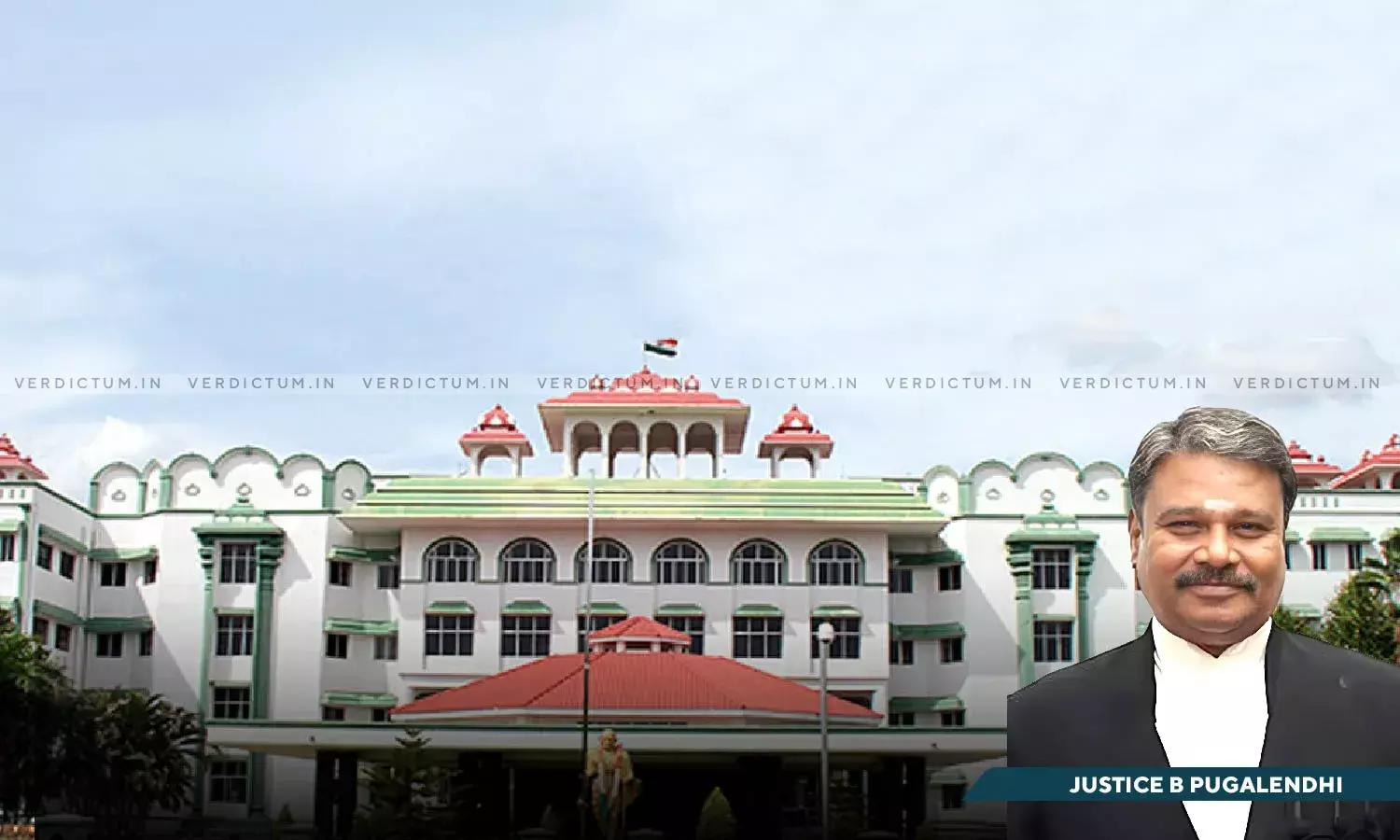Madras High Court Refuses Permission For Repeat Protest; Says “Protest Is Not Meant For Fun”
The Court said the right to protest cannot override the public’s right to move freely and live in peace, and reiterated that political parties must act responsibly when seeking to exercise Article 19 rights.

Justice B. Pugalendhi, Madras High Court, Madurai Bench
The Madras High Court has dismissed a petition challenging the police's denial of permission for a second protest at the same venue within five days. The Petitioner had sought to hold a demonstration on July 8, 2025, over the custodial death of Ajith Kumar in Sivagangai district, following an earlier protest by the same political party on July 3, 2025. The Court observed that the right of protest cannot be used in a cavalier manner to cause persistent irritation or disharmony to the general public.
A Bench of Justice B. Pugalendhi observed, “The conducting of protest is not meant for fun and such protests cannot be conducted to the whims and fancies of the political parties.”
The Court added, “The sacrosanct right of protest cannot be used in a cavalier manner to cause persistent irritation or disharmony to the general public. The aspect of visual and auricular violation aggression against the general public should be kept in mind while such protests are carried out.”
Advocate M. Dinesh Hari Sudarsan appeared for the Petitioner, while Additional Public Prosecutor E. Antony Sahaya Prabhakar represented the Respondents.
Brief Facts
The Petitioner had filed the writ petition seeking to quash the police order dated July 6, 2025, by which his request to hold a demonstration was rejected. The Petitioner intended to protest over the alleged custodial death of one Ajith Kumar and had originally sought permission for July 8.
The police denied permission citing multiple reasons, including the earlier protest on July 3 by the same party, the coinciding chariot festival at a nearby temple requiring substantial police deployment, the sensitive location of the protest site, and the weekly market at the venue that would lead to congestion. The police stated that a large gathering could pose safety risks, obstruct traffic, and endanger public property.
The Petitioner alleged discrimination, claiming that other political parties had been granted permission to protest on the same issue and that the restriction on participation of their party leader in the earlier protest compelled them to hold another demonstration.
However, the Respondents filed a counter, denying any such restriction or reference to the Petitioners’ leader’s participation in the earlier application.
Reasoning of the Court
The Court noted that the police had denied permission for the protest on three grounds, i.e., the party had already held a protest at the same place on July 3, another festival was scheduled on July 8 and would require full police deployment, and the proposed protest site coincided with a weekly market.
Taking note of the Respondent’s submissions, the Court said, “The right to freedom of expression and protest is guaranteed under the Constitution of India. However this right conferred under Article 19(1)(a) and (b) of the Constitution is subject to reasonable restrictions under Article 19(2) and (3).”
The Court observed, “The petitioner political party is intending to conduct the protest on account of the death of one Ajith Kumar. This very same political party appears to have conducted protest on 03.07.2025, however, they are intending to conduct another protest on 08.07.2025, on the same cause of action, at the same place that too within a period of five days.”
The Court noted that while Article 19(1)(a) and (b) guarantee the right to freedom of expression and peaceful assembly, these are subject to reasonable restrictions under Article 19(2) and (3). It added, “The political parties are having certain responsibilities towards general public, who would be disturbed pursuant to their protests. The protests, if any conducted would certainly affect the right of free movement of common public and it would disturb the people in and around the place of protests.”
The Court also noted the contents of the police counter affidavit stating that during the July 3 protest, speakers had used “filthy language and mentioned communal names”, and that one speaker had referred to the complainant in terms that “demean the dignity of women in general.”
The Bench held, “This court cannot find fault with the reasons assigned by the respondent police for rejecting the request of the petitioner for conducting the protest in the same place on 08.07.2025.”
However, it permitted the Petitioner to submit a fresh application to the police, and on receipt of such application, the police were directed to consider the same and take a decision within a period of twenty-four hours.
Cause Title: J. Eswaran v. State of Tamil Nadu & Ors. (W.P.Crl.(MD) No.448 of 2025)


